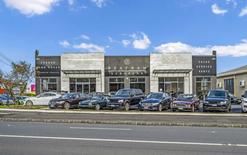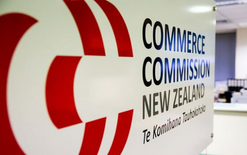Market displays ‘resilience’

The Motor Industry Association (MIA) says new vehicle registration figures for last month, which came in at 9,430 units, indicate market resilience amid economic challenges.
Aimee Wiley, chief executive, adds that although July’s total is below the year-to-date monthly average of 10,315, it suggests a stabilising trend within the industry amid a 21 per cent overall decline compared with 2023.
The light passenger segment remains the hardest hit, down 29 per cent year-to-date.
As for light commercial registrations, these remain stable at a monthly average of 3,023 so far this year, compared with the 3,084 monthly units recorded in 2023, indicating sustained demand.
“The stabilisation in July reflects the resilience of the New Zealand automotive industry,” says Wiley, pictured.
A breakdown of registrations by motive power in July by the MIA shows battery electric vehicles (BEVs) claimed a 6 per cent market share with 566.
Plug-in hybrids (PHEVs) secured 2.4 per cent with 230 sales, hybrids clocked up 1,978 registrations for 21 per cent, and vehicles with internal combustion engines accounted for 70.6 per cent of the market with 6,656 units.
BYD’s Atto was the top-selling BEV last month on 59 units, followed by the Tesla Model Y with 56 and VW ID.4 on 43. Completing the top five was Teslas’s Model 3 and the Kia EV9 with 42 and 31 sales respectively.
The Toyota RAV4 led the hybrid market on 394 units, Next was the Suzuki Swift with 186 registrations followed by three Toyota models – the Corolla on 130, Highlander with 118 and C-HR with 86/
Mitsubishi dominated the PHEV sector, its Eclipse Cross leading the way on 44 units and the Outlander next with 28. BYD’s Sealion was the third best-selling PHEV in July on 20 units.
Last month’s leading segments were pick-up/chassis cab on 22.3 per cent, compact SUVs with 21.5 per cent and medium SUVs on 20.2 per cent.





